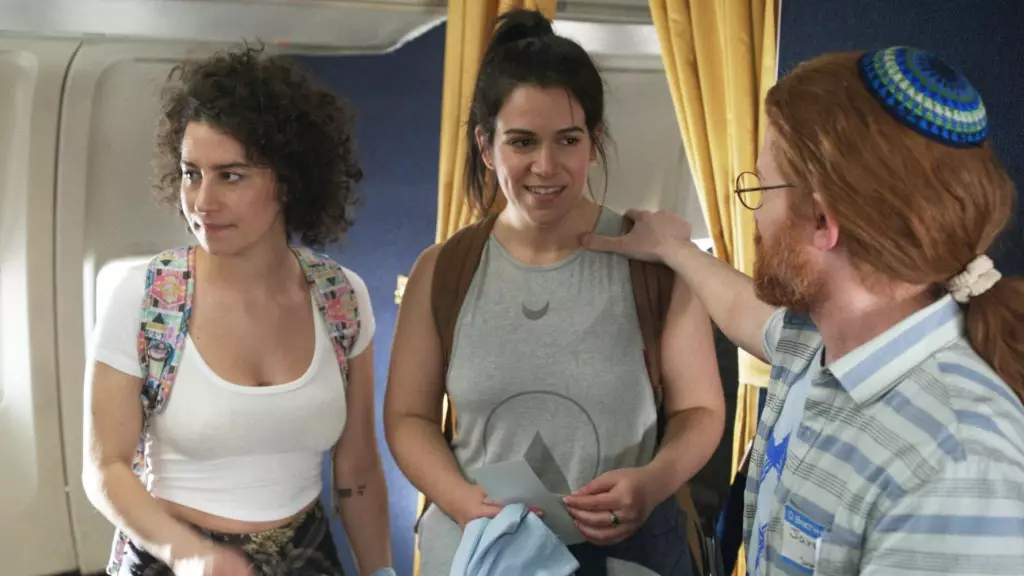Ilana Glazer and Abbi Jacobson, the creative minds behind the acclaimed series Broad City, faced a significant dilemma during the production of their show. Initially, they intended to film a segment in Israel for the Season 3 finale but ultimately chose to abandon the idea, a decision that reveals deeper themes in their comedy and the cultural context of their work. The backdrop of conflict between Israel and Palestine added layers of complexity to their undertaking, prompting Glazer to reflect on the serious implications of their filming location.
The producers’ initial plans were not without ambition. They aimed to capture the spirit of their characters’ journey to Israel. However, as violent outbreaks escalated, the creators began to reconsider. Glazer’s insight into their decision-making process highlights a growing awareness of social issues that extend beyond humorous storytelling. This introspection elicits a critical examination of how comedians navigate the landscape of contemporary politics through their art.
In an industry often driven by commercial success and sensationalism, Glazer and Jacobson’s decision to pull the plug illustrates a commitment to authenticity. They were offered military protection while filming, a circumstance that starkly contradicted the safe and entertaining experience they envisioned for their viewers. Such contradictions serve as a reminder that comedy can be a powerful vessel for commentary, but it must also remain sensitive to real-world issues. Glazer’s recounting of the situation brings to light the uncomfortable truths about producing art in environments rife with turmoil.
Interestingly, the original concept for the two-part episode promised surreal and humorous scenarios, including elements that intended to address societal issues, such as body positivity and representation. The comedic aspect of Glazer’s “bacne” storyline, as well as the imagined portrayal of Jesus by a Black Jew, underscores the duo’s ability to blend humor with meaningful discussions about identity and representation. The abrupt end to this creative endeavor reflects a broader concern among content creators about the responsibilities they bear in the face of ongoing global conflicts.
Despite the disappointment of not filming in Israel, Glazer expressed satisfaction with the show’s eventual direction, remarking that their artistic values evolved alongside their understanding of the complex geopolitical landscape. Their decision to forgo the original idea led to the creation of two other acclaimed episodes that captured the comedic essence of their lives, devoid of the weight the trip might have imposed.
The unfolding of this narrative emphasizes how creative adaptations can enrich storytelling. The characters’ relatable escapades at the airport and the humorous challenges of their Birthright trip served to entertain while reflecting their personal journeys towards fulfilling their creators’ values. Glazer’s acknowledgment of their evolving perspectives brings forth a larger conversation about the importance of sensitivity within comedy.
The choice to alter their original plans symbolizes a maturation in the voices of Glazer and Jacobson, illustrating that while the world may be rife with complexities, the realm of humor can still serve as a space for growth and reflection. Their journey through this creative crossroads highlights the valuable connection between understanding the world and enriching the narrative landscape of comedy.

Leave a Reply